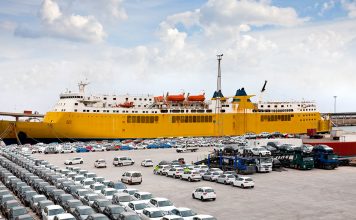 Out of severe crisis situations, solutions are usually sought and developed. This is the case with the recent six day-long fuel shortage that prompted the convening of last week’s stakeholders’ forum to map out a way forward to ensure a fuel crisis never recurs.
Out of severe crisis situations, solutions are usually sought and developed. This is the case with the recent six day-long fuel shortage that prompted the convening of last week’s stakeholders’ forum to map out a way forward to ensure a fuel crisis never recurs.
For once I witnessed a forum where all pertinent parties were willing to listen to each other and digest all the reasonable and actionable solutions suggested.
Perhaps the most significant item that emerged from the forum was the realisation that a fast-tracked petroleum sector master plan is urgently needed. Such a master plan would look at all the existing petroleum infrastructural capacity, both private and public, and match it with petroleum demands today, up to 2030 and beyond.
Such a study conducted by an independent entity would identify investment needs in the short, medium and long term. The study would probably also look at enabling regulatory frameworks for the sector.
In addition, the study would take into account the needs of the neighbouring countries while factoring in all the petroleum-related developments in those countries.
It also emerged at the forum that the Mombasa refinery has no option but to change to a new business model that provides firmer performance guarantees to its users.
Within six months the refinery will be expected to develop a road map which will define how a “merchant refinery” business model will work. This will basically involve the refinery directly purchasing crude oil, processing it and selling products to marketers. The refining margins will be the basis for their revenue in place of the current toll processing fees.
A merchant refinery processing model will have to demonstrate competitiveness when compared with the alternative cost of direct products imports.
ERC would still be expected to have a say on the final ex-refinery prices, as these will have a bearing on the controlled products price maxima.
If this shift in the refinery processing model to increase production guarantees works effectively, it will reduce pressure on urgent long term decisions on the refinery.
Moreover, it should be recognized that with the ongoing thrust on oil exploration, the Mombasa refinery will potentially have strategic national significance.For this reason we should not make rushed decisions that may not be in keeping with future prospects of an oil find.
Pipeline role
Turning to the Kenya pipeline company, there was concurrence at the forum that Nairobi petroleum distribution area lacks sufficient storage and loading facilities.
This makes evacuation of products a nightmare resulting in a serious pushback to the Mombasa imports infrastructure, again resulting in endless debates on “ullage”.
Additional storage and loading facilities in Nairobi should be “open access” to all marketers who will not only improve products evacuation capacity but will also provide a level playing ground for most of the licensed marketers currently unable to fully access the market. There was also realisation that the main 33- year- old Mombasa to Nairobi pipeline is nearing its end due mainly to massive corrosion especially nearer Mombasa.
Continued patchwork on the line will not provide this country with the required guarantee of operational integrity as this line can fail without prior warning, plunging the country and the region into a serious supply crisis.
KPC mentioned that they are planning investment in a new 16 inch pipeline parallel to the existing one.
My gut feeling is that this is already an emergency level investment that requires immediate implementation without having to wait for the master plan.
The need for strategic stocks was discussed mainly for the dual purpose of petroleum supply security and price stabilisation. We have already seen an advertisement by National Oil for this project.
A national strategic stocks program is a requirement of the Energy Act 2006, and should be systematically implemented as a part of the proposed master plan.
The set up costs for strategic facilities and the stocks are hefty, and the key decisions by the Energy and Treasury authorities will be how to finance the program. If we discover our own oil, the urgency on strategic reserves will be much diminished.
Divergent marketers
What was interesting at the forum is the emergence of a new group of oil marketers called Petroleum Industry Association of Kenya (PIAK) recently registered and with a current membership of about 30 out of the 50 or so licensed oil marketers. Their key label is “non-major and indigenous” marketers, which implies divergent interests from the “majors’ who visibly control the Petroleum Institute of East Africa (PIEA).
The divergent interests and opinions of the two groups played out in public during the recent fuel crisis. PIAK says that they directly and indirectly distribute their products through roughly 850 service station across the country compared to about 500 held by the majors.
At the forum, the differences between PIAK and majors were mostly pronounced in the issues to do with products imports capacity allocation. The majors are understandably intent on protecting and growing their existing market shares while the PIAK members are obviously intent on capturing and growing market shares.
This is competition at its best and all that is required is a fair playing arena for all. At the end of the forum I did not sense any concrete consensus on way forward on “ullage” issues, which did not surprise me.
Lobby attendance
The forum had attendance from key consumer interests, and as expected the message from the groups was mainly on need to bring petroleum prices down.
There are of course immediate opportunities to capture cost reductions by enhanced efficiencies at KPRL, KPC and KRA, but these gains are negligible compared with the high total cost of petroleum importation which ERC has clearly demonstrated in the media.
There was also general agreement that public education in its simplest format is needed for consumers to appreciate the reality of high oil costs today and make informed opinions.
Going forward, I think the forum came up with concrete actionable solutions to address the petroleum sector weak areas now and in the future.
The Energy authorities should seize this opportunity and demonstrate commitment and focus on the proposed solutions. Their commitment will greatly erase political content from the ongoing public debates on oil.
Article source: http://www.businessdailyafrica.com/Opinion+++Analysis/-/539548/1168640/-/item/0/-/2b0xwwz/-/index.html






![Top 20 Used Cars to Avoid Buying in Kenya – [PHOTOS]](../../../blog/wp-content/uploads/2013/11/top-used-unreliable-cars-to-avoid2-80x60.jpg)



![Top 20 Used Cars to Avoid Buying in Kenya – [PHOTOS]](../../../blog/wp-content/uploads/2013/11/top-used-unreliable-cars-to-avoid2-100x70.jpg)






